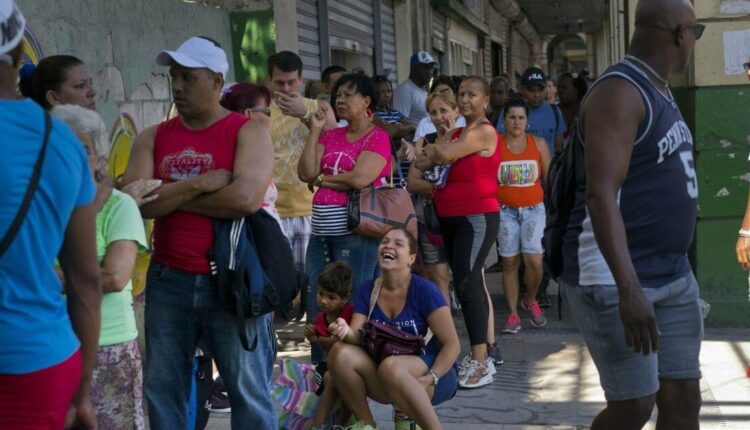
Long lines and unleashing the productive forces (+Español)
If Havana’s Malecón is the capital city’s sofa, the Areopagus can be found in its long lines. On a day-to-day basis the national situation is debated in many forms — including silence and gestural language.
I await in a queue on the last day of the year. I listen and am convinced that comments I hear could be used for a reggaeton that would begin how, and with what, to invent the end of the year celebration, the money that is not enough even if you dig deep into your pockets… costs are through the roof… a loaf of sliced bread costs 400 Cuban pesos…where…on the corner…a bar of guava 250 [Cuban] pesos…not to mention nougats, that’s in MLC…in what? (asks an octogenarian)…in hard currency…Ah, ours is soft (comments another and laughs)… there’s just not enough money… prices through the roof… the neighbor who is selling his apartment, indicative that he is leaving, like so-and-so (…), the son of (…) who has already arrived …Yes, where… where else… by land or by… I don’t know, but he’s here…
Listening to the angry words and comments, I find the knot that ties what and how to celebrate the end of the year with who will be present, a reason for anguish in a society where the family –and close friendships– is being fractured. The economic crisis that we are dragging along is the main cause of this migratory drain that we are suffering.
Thus, the parties and congratulations with those from ‘over there’ will be via hand-held cell phones and many Cubans will experience the mystery of crying and laughing at the same time. Someone will counter that one can’t generalize. Then listen to these facts: Between October 1 and December 31 (a period of 3 months), the US Coast Guard intercepted 4,076 Cuban rafters. The monthly average comes out to 1,358 interceptions, or about 15 daily.
Between the low birth rate and migration that’s occurring we have been emptying the island, a problem that not only affects the social fabric, as it will have serious repercussions on the productive sector, in other words, the economy. As for the economy…
One day after the aforementioned statistics, on Dec. 30 I read in Cubadebate that the President of the Republic, during his speech at the last meeting of the Council of Ministers, was quoted as saying, when referring to the issues that are on everyone’s minds, “that the productive forces must be unlocked, thereby encouraging more incentives and less the obstacles and prohibitions that slow down development.”
Since 2008, the call to unlock the productive forces has been repeated countless times by the country’s highest leaders. The question is who is being called upon? Isn’t it the government that has to unlock what is locked? Why not unlock it? What endogenous factors prevent it?


